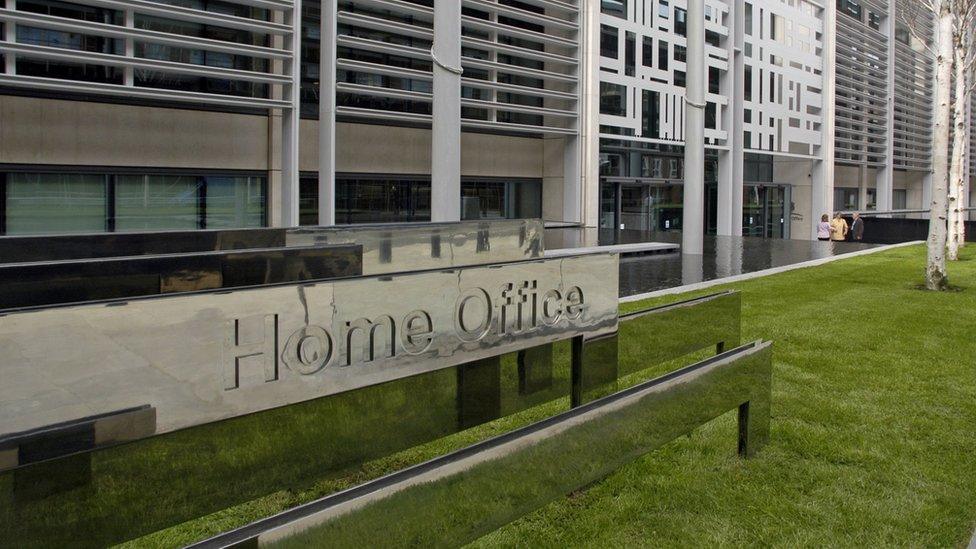Surveillance bill: What's changed?
- Published

The government has published the latest draft of its Investigatory Powers Bill, which sets out rules on surveillance by public authorities.
Key changes since the last version are explained in a number of draft codes of practice, external, published by the Home Office:
1) On internet connection records - which are details of websites, social media sites and online apps - the code says:
Applications may be made by the public authority for the purposes of identifying:
The communications service used by an individual;
Internet services used to access or make available illegal material; or
What other internet services a person is using
It's this last category that's been added since the draft bill - and could include, for instance, police who are investigating a trafficking gang searching web browser details to see if they booked airline tickets, transferred money or looked up locations on a map.
2) Police and the intelligence agencies can apply to hack someone's smartphone or computer - so-called "equipment interference". This was included in the original proposals, but under the revised plans there's another situation in which hacking can be undertaken.

The code says an "urgent" equipment interference warrant can be obtained where there's "imminent threat to life or serious harm - for example, if an individual has been kidnapped and it is assessed that his life is in imminent danger".
This would also include situations where police were searching for a missing child or vulnerable person.
3) The bill provides for interception warrants to be issued in the interests of the "economic well-being of the UK so far as it is relevant to national security". There was fierce criticism of this proposal - the joint committee on the draft bill said it should be clearly defined.
In the government's response to the committee justifying its inclusion, it says warrants issued to preserve "economic well-being" might include the danger of "instability in parts of the world or unexpected crises which may undermine British markets and other economic interests or create difficulties in the continued supply of a commodity on which our economic security depended".
4) The draft proposals suggested some safeguards against unjustified intrusion into confidential discussions between people and their lawyers - which are subject to legal privilege. But they weren't in the bill itself.
The new bill has a new clause with the safeguards in place which says that intercepting such communications will be authorised only where "there are exceptional and compelling circumstances which make the interception or selection for examination of these items necessary".
5) The bill sets out time limits on examining and applying for warrants for bulk personal datasets. These are sets of personal information about a large number of people, most of which will not be of any interest to the authorities. Examples include the electoral roll, telephone directories and travel-related data.
It says UK-originated datasets must be looked at "within a maximum of three months" and for overseas-originated information six months.
- Published2 March 2016
